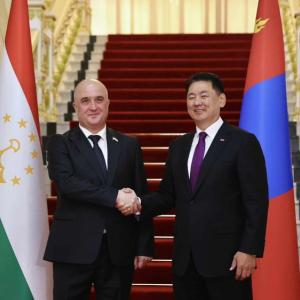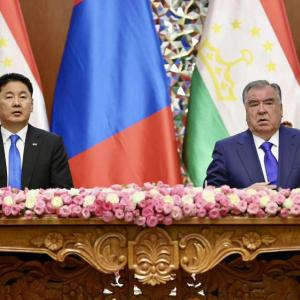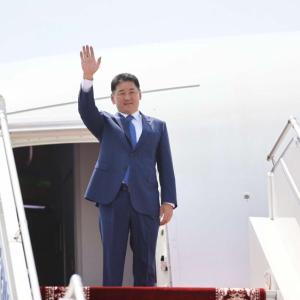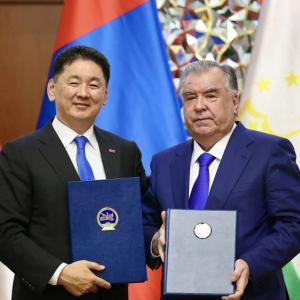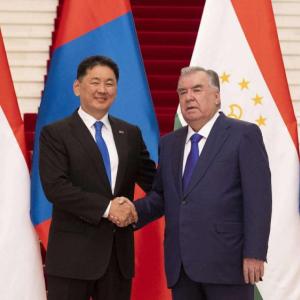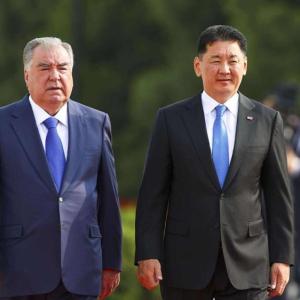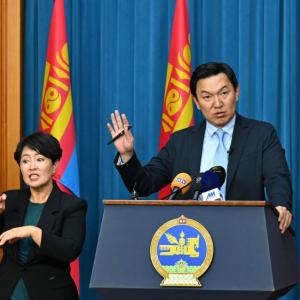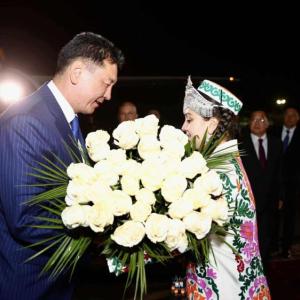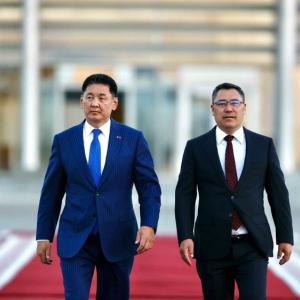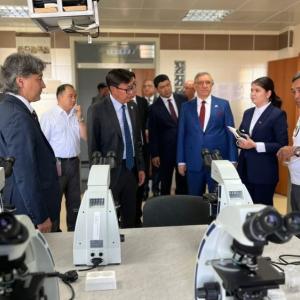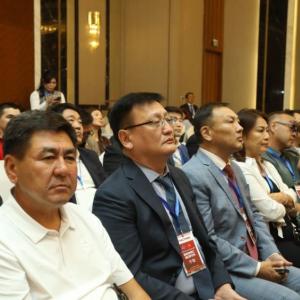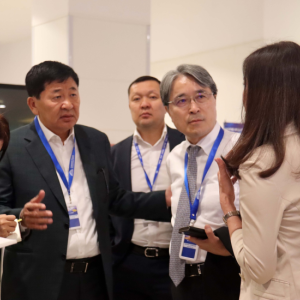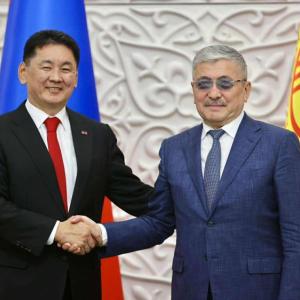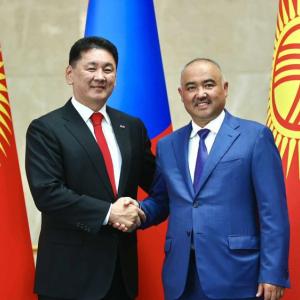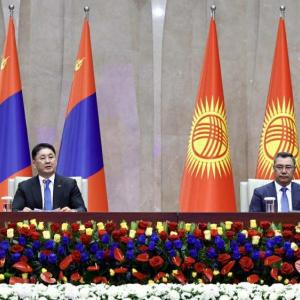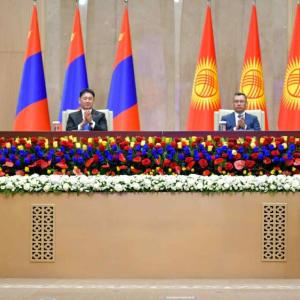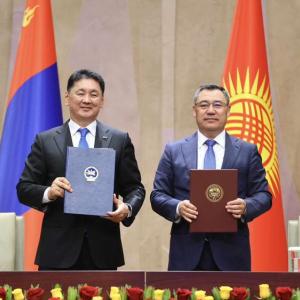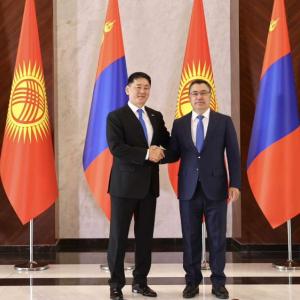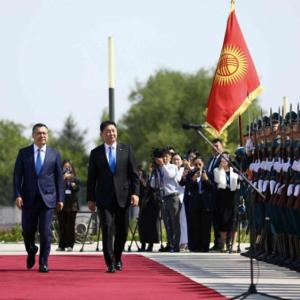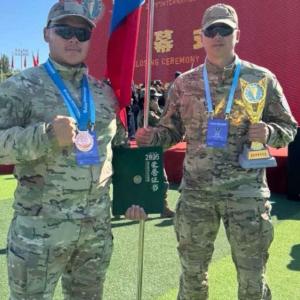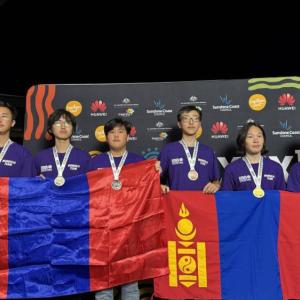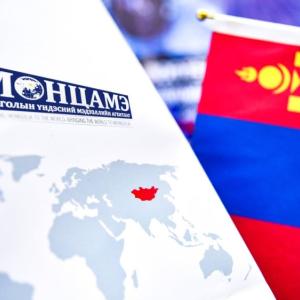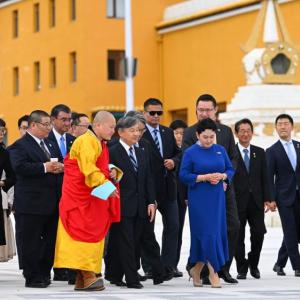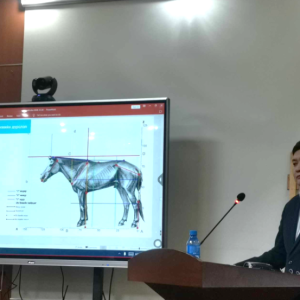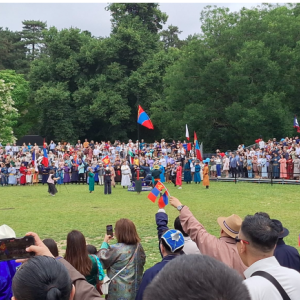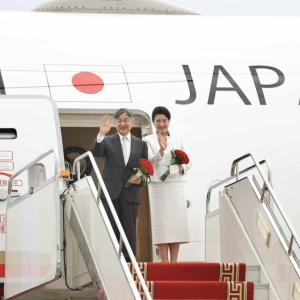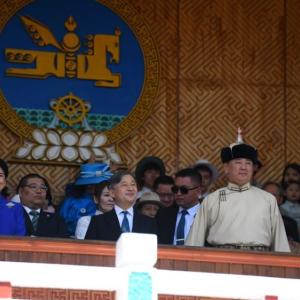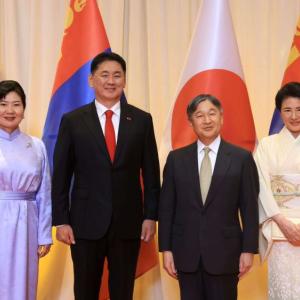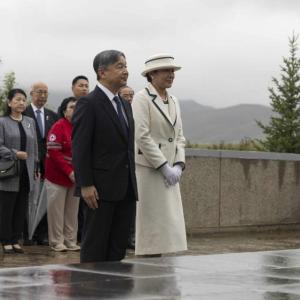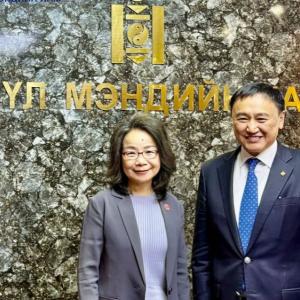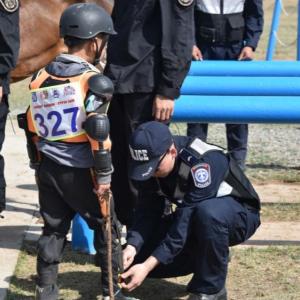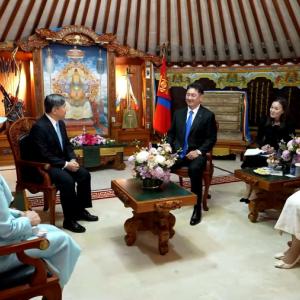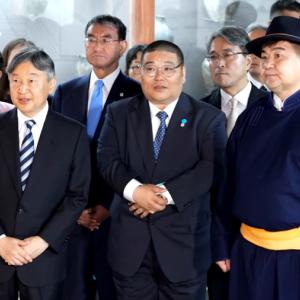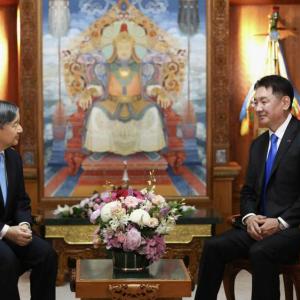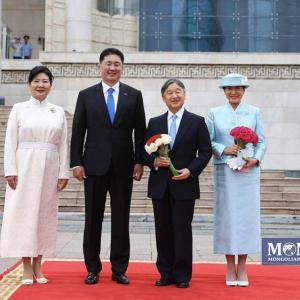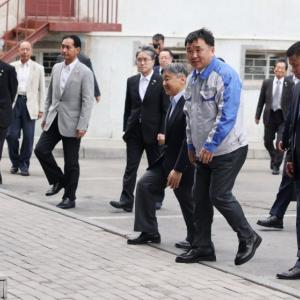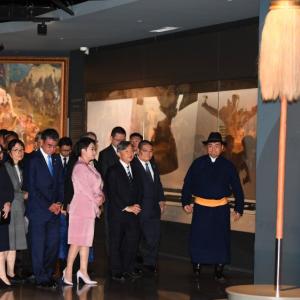Access to safe and dignified menstruation is a fundamental need and a human right
Society
Society’s response to menstruation is linked to human rights and gender equality
28/5: Observing Menstrual Hygiene Day
Ulaanbaatar /MONTSAME/. Menstrual Hygiene Day is observed
throughout the world on 28 May. The theme of Menstrual Hygiene Day 2022
is: making menstruation a normal fact of life by 2030. We interviewed UNICEF
Representative in Mongolia, Evariste Kouassi-Komlan, about why observing this
day and raising menstrual hygiene awareness is important.
Would
you tell us about about Menstrual Hygiene Day and why is it observed on 28 May?
Thank you for having me on your media
platform to talk about this important human rights, gender equality and human
dignity-linked issue. It is vital to raise awareness on this day because
unfortunately – due to cultural beliefs, gender inequality and stigmatization –
millions of girls and women, are unable
to manage their menstrual cycle in a dignified and healthy way. The theme of
Menstrual Hygiene Day (MHD) in 2022 is: making menstruation a normal fact
of life by 2030. Observing MHD creates a global advocacy platform that brings
together the voices and actions of non-profits, government agencies,
individuals, the private sector and the media to promote good menstrual health
and hygiene (MHH) for all girls and women. It aims to catalyze awareness and action
towards a world without period poverty and stigma. Hence, a public
awareness-raising campaign, #WeAreCommitted, is to be organized on this day.
Why 28 May? Well, the date of 28 May represents the menstrual cycle, the average
duration of which is 28 days, with on average five days of bleeding. Of course the
fifth month in the calendar is May, so there is a hidden symbolism in it.
In
many places across Mongolia, particularly in rural areas, girls, especially
schoolgirls, feel ashamed and intimidated for menstruating. Is this a common
problem around the world?
Indeed it is, despite menstruation being a natural fact of life and a monthly occurrence for 1.8 billion persons of reproductive age. Yet millions across the world are denied the right to manage their monthly menstrual cycle in a dignified and healthy way. We all should realize that periods are very normal and nothing to be ashamed of. No one should make fun of anyone for getting their period. The way people and societies act and think about menstruation makes a big difference to how girls and boys behave. Girls with disabilities, for example, face even more difficulties because accessible toilets are not always available, especially in rural areas.
This is also true in Mongolia, where most schools still use open pit latrines and have no running water. Women and girls encounter difficulties managing hygiene during menstruation when they lack the enabling environment to do so. When they have difficulty exercising their rights to water, sanitation and education, they will likely have difficulty managing their menstruation
.
When women and girls cannot manage their menstrual hygiene, it can negatively impact their rights, including the rights to education, work and health. Hence, it is important to discuss menstruation with your friends and families and raise awareness of it so that there is no more bullying around menstruation in schools, communities or any other setting. It also is very important to enable people to manage their monthly menstrual cycle in a dignified and healthy way through making water and sanitation facilities accessible. Mobilizing all of the society including governments, civils society, private sector around water, sanitation and hygiene (WASH) issues help promote and manage menstrual health.

Why
does UNICEF work on this issue and what other UNICEF interventions can you
highlight?
UNICEF, the largest global child rights
organization, envisions a world where every girl can learn, play and safeguard
her own health without experiencing stress, shame or unnecessary barriers to
information or supplies during menstruation. UNICEF is working with governments
and partners to ensure that schools provide safe and hygienic access to WASH
facilities for girls to manage their periods well. UNICEF also supports a
better understanding of menstruation though making information accessible and
enabling supplies. UNICEF is dedicated to helping girls face their periods with
dignity. One such intervention is an innovative approach, introduced with
UNICEF’s help, to track and manage periods. UNICEF reached out to girls in many
different countries to create the OKY app. Girls determined themselves how the
app should look and work, and it has many features to protect the privacy of
girls who share phones or have poor connectivity. With the user-friendly OKY
app, girls have a tool created by girls themselves, so that they always feel
informed and in control of their menstruation.
With
the goal of “making menstruation a normal fact of life by 2030” what improvements
are expected in the coming years?
Unfortunately, evidence on MHH is still limited. Therefore, more and higher-quality evidence needs to be generated on the impact of MHH on girls’ lives, and the effectiveness of MHH interventions. Even where previous studies exist on MHH, information may not be available for specific sub-populations. Special attention needs to be paid to the supply side and supporting local small and medium-sized enterprises to develop locally made and biodegradable pads for menstruation. We need to make water and sanitation facilities available in dormitories and make pads always available in schools. Menstrual hygiene education should be included in all schools as part of regular coursework.
We need also to find ways to encourage flexible working arrangements for people who experience pain during menstruation.
There
is a clear need to continue campaigning to reduce taboos about menstruation. Finally,
we need to invest more public and private resources in managing menstrual
health. As MHH is important for the fulfilment of girls' and women's
rights – and as you’ve pointed out is also a key objective of the Sustainable
Development Goals – UNICEF remains committed to advancing the MHM agenda in
Mongolia and throughout the world.

 Ulaanbaatar
Ulaanbaatar


